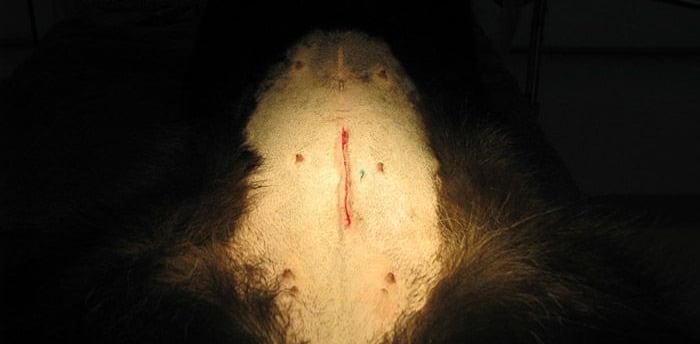The Impact of Spaying/Neutering: Myths vs. Facts
INFOPET HEALTHDOGSCATS
10/23/20243 min read


The Impact of Spaying/Neutering: Myths vs. Facts
When it comes to pet ownership, one of the most important decisions you can make is whether to spay or neuter your furry friend. Unfortunately, there are a lot of myths swirling around about these procedures. Let’s clear the air and dive into the facts!
What Does Spaying and Neutering Mean?
First, let’s break down what spaying and neutering actually involve:
Spaying is the surgical procedure for female pets that removes the ovaries and usually the uterus.
Neutering (or castration) is the equivalent for male pets, involving the removal of the testicles.
Both procedures help control the pet population and can offer health benefits, but there are common misconceptions that may deter pet owners.
Myth 1: Spaying/Neutering Will Change My Pet’s Personality
Fact: While every pet is unique, spaying or neutering generally doesn’t change their fundamental personality.
You might notice some differences in behavior, like a reduction in territorial marking in males or less heat-related behaviors in females.
Most pets remain the same loving, playful companions you know and love.
Myth 2: My Pet Will Get Fat After the Procedure
Fact: Weight gain is more about diet and exercise than the procedure itself.
Spaying or neutering can slightly change your pet’s metabolism, but it’s mainly up to you to maintain a healthy diet and exercise routine.
Regular playtime and a balanced diet can keep your pet fit and trim!
Myth 3: Spaying/Neutering is Dangerous
Fact: Like any surgery, spaying and neutering carry some risks, but they are generally very safe.
Modern veterinary practices use anesthesia and monitoring techniques that minimize risks.
Complications are rare, and the benefits often outweigh the risks.
Myth 4: My Pet Needs to Experience One Litter Before Being Spayed/Neutered
Fact: There’s no need for your pet to have a litter to be healthy or happy.
In fact, spaying and neutering can prevent a variety of health issues, including certain cancers.
Waiting to spay or neuter can increase the risk of unwanted litters and the associated problems.
Myth 5: Spaying/Neutering Will Solve All Behavior Problems
Fact: While these procedures can help reduce certain behaviors, they aren't a cure-all.
Training, socialization, and attention are crucial for addressing behavioral issues.
If your pet exhibits problematic behaviors, consulting a trainer or behaviorist can be more effective.
Myth 6: It’s Too Expensive
Fact: While there is an upfront cost to spaying or neutering, many communities offer low-cost options or even free services.
The long-term savings on health care and the prevention of unwanted litters can make it a financially smart decision.
Some shelters and animal welfare organizations provide financial assistance or have programs to help offset the costs.
Benefits of Spaying/Neutering
Now that we’ve debunked some myths, let’s talk about the real benefits of spaying and neutering your pets:
Health Benefits:
Reduces the risk of certain cancers (like ovarian and testicular cancer).
Helps prevent infections, such as pyometra in females.
Behavioral Benefits:
Can reduce aggressive behaviors and roaming tendencies.
Less marking and territorial disputes among males.
Population Control:
Helps reduce the number of homeless pets. Every year, millions of animals enter shelters, and many face euthanasia.
Contributing to responsible pet ownership helps address this ongoing issue.
Financial Savings:
Prevents potential costs associated with raising puppies or kittens.
Reduces the likelihood of expensive health issues down the line.
When is the Best Time to Spay/Neuter?
Most veterinarians recommend spaying or neutering your pet between 6 and 12 months of age. However, it's always best to consult with your vet about what’s right for your pet, as some factors, like breed and health, can influence the timing.
-----------
Spaying and neutering are crucial decisions that can have a significant impact on your pet’s health, behavior, and the pet population overall. By debunking common myths and understanding the facts, you can make an informed choice that benefits your furry friend and your community.
So, if you're considering spaying or neutering your pet, chat with your veterinarian today! They can provide guidance tailored to your pet's specific needs. Remember, a healthy pet is a happy pet!
